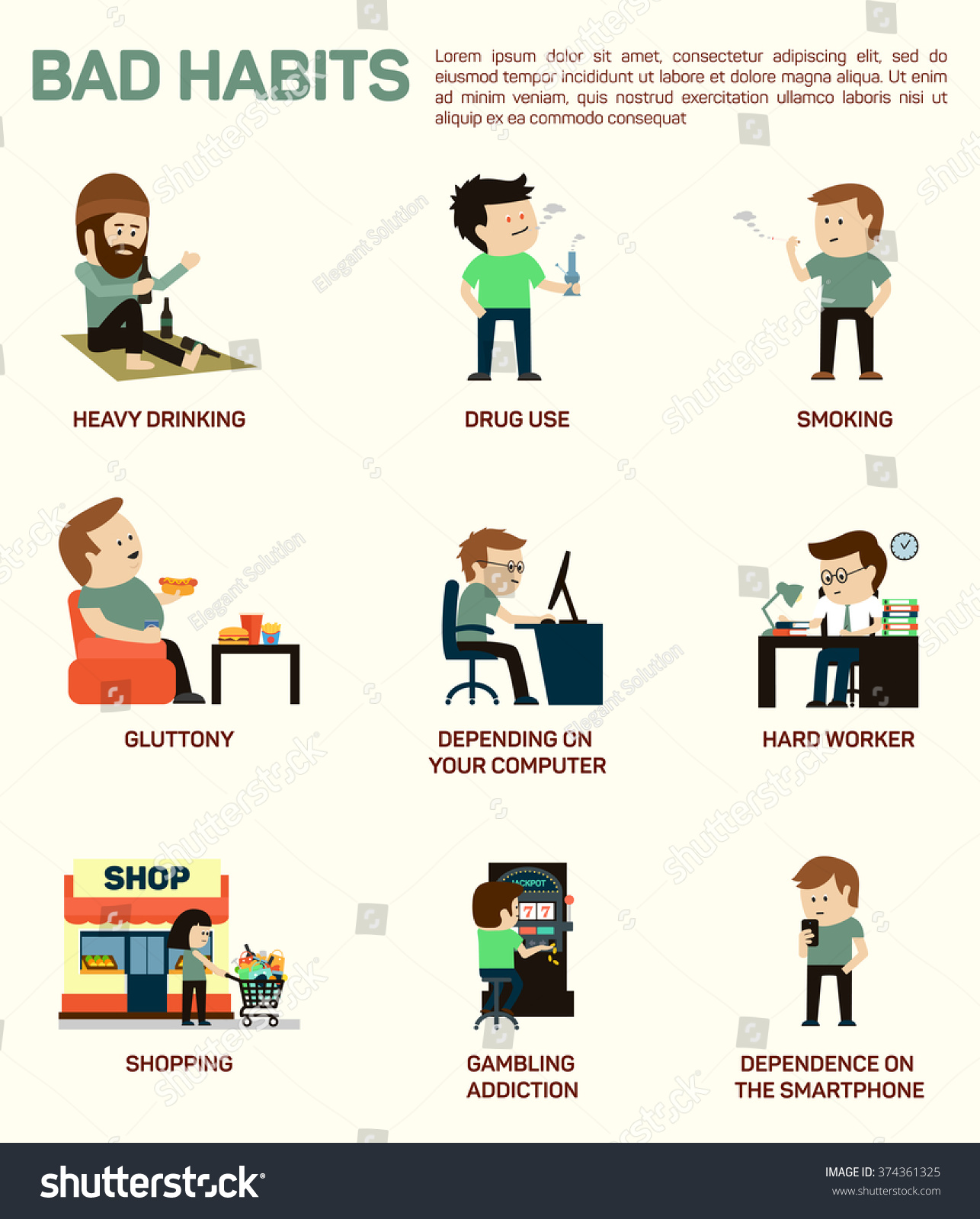Gambling Bad Habit
A bad habit may be bad. But at least fixing it doesn’t involve brain scans, antidepressant pills or clinging for dear life to some cantering Cheyenne or Misty. The digital horses are a lot safer.
- Gambling is all about choices. You can choose to continue doing what you’re doing, which probably involves a lot of losing. Or you can figure out what bad gambling habits you have and replace them with good habits. I’ve put together a list of the five worst habits losing gamblers have to help you get started identifying why you’re losing now.
- It isn't so much about labeling gambling as a good or a bad habit. The key is whether the individual will form good gambling habitscreated from a deeper understanding of themselves and human behavior or bad gambling habitscreated by impatience and the need to make fast money.
- Currently, Gambling addiction is a serious brain disease. It can affect how a person develops a fetish for various forms of gambling. In some cases, it is inseparable and often dangerous. Unfortunately, the addicts put gambling activities at the top of their priority list.
Gambling Bad Habits
Do you know someone who gambles excessively? If so, perhaps you’ve wondered if this individual just had a bad habit or if he or she was actually addicted to gambling. It’s a question that even the experts have debated. But the latest diagnostic publication of the American Psychiatric Association, the Diagnostic and Statistical Manual (DSM)-V, confirms that excessive gambling can indeed be an addiction, just like substance abuse.
The Nature of Gambling Addiction

“Problem” gambling, also referred to as pathological or compulsive gambling, affects an estimated 2 – 4% of the population. Before recent changes by mental health clinicians, it was classified as in impulse control disorder. Like kleptomania (uncontrollable stealing) or pyromania (impulsive fire setting), compulsive gambling was considered a mental disorder associated with poor impulse control.

With further research, a new classification of the disorder has been made. In the DSM-V, compulsive gambling is considered to be one of the “substance-related and addictive disorders.” Why the change? There is growing clinical evidence that pathological gambling has much in common with traditional substance abuse disorders.

First, the effects of the respective disorders on individuals’ work, financial, and personal lives can be similar. Neurochemical testing and brain imaging have also made a case for the belief that gambling activates the brain’s reward system in a manner similar to drugs. For example, compulsive gamblers report highs from gambling as well as cravings. Furthermore, gambling problems tend to run in families, indicating potential genetic factors. Finally, pathological gamblers are more likely to abuse alcohol and other drugs.
Symptoms of Gambling Addiction
In order for an individual to be classified as having a gambling disorder, at least 4 of the following symptoms must be present:
- Frequent preoccupation with gambling;
- Tendency to gamble increasingly large amounts of money;
- Using gambling to cope with feeling distressed;
- Lack of success in controlling, cutting back, or stopping the behavior;
- Lying to others to hide gambling or committing illegal acts to finance;
- Restlessness or irritability when attempting to decrease or stop gambling;
- Frequent and often long-term “chasing” of losses with increased gambling;
- Loss of a job or relationship due to behavior;
- Reliance upon others to get out of financial straits.
Gambling Is A Bad Habit Hard To Break
Many of these symptoms resemble classic addictive symptoms, such as withdrawal and loss of control.
Individuals with pathological gambling problems are more likely to exhibit symptoms of other psychiatric problems. In addition to substance abuse, such problems may include mood disorders, anxiety, or personality disorders.
Gambling Bad Habit Quotes
While the effects of pathological gambling should not be minimized, viewing the behavior as evidence of an addiction rather than a character flaw can be helpful in encouraging an individual to seek treatment. It may also remove some of the stigma associated with the behavior. With appropriate intervention, individuals with gambling addictions can recover and live productive lives. (And that’s a sure bet!)